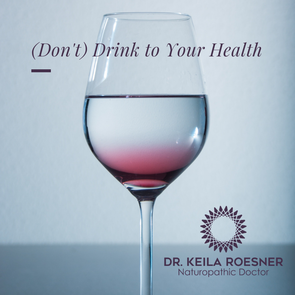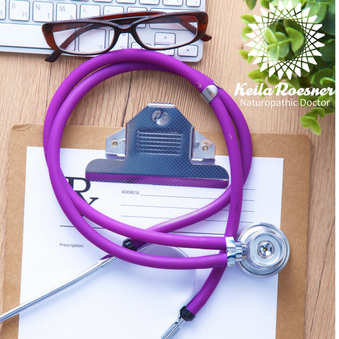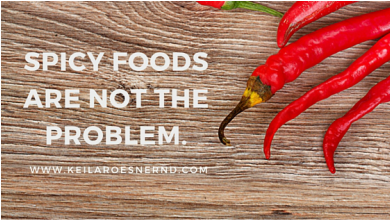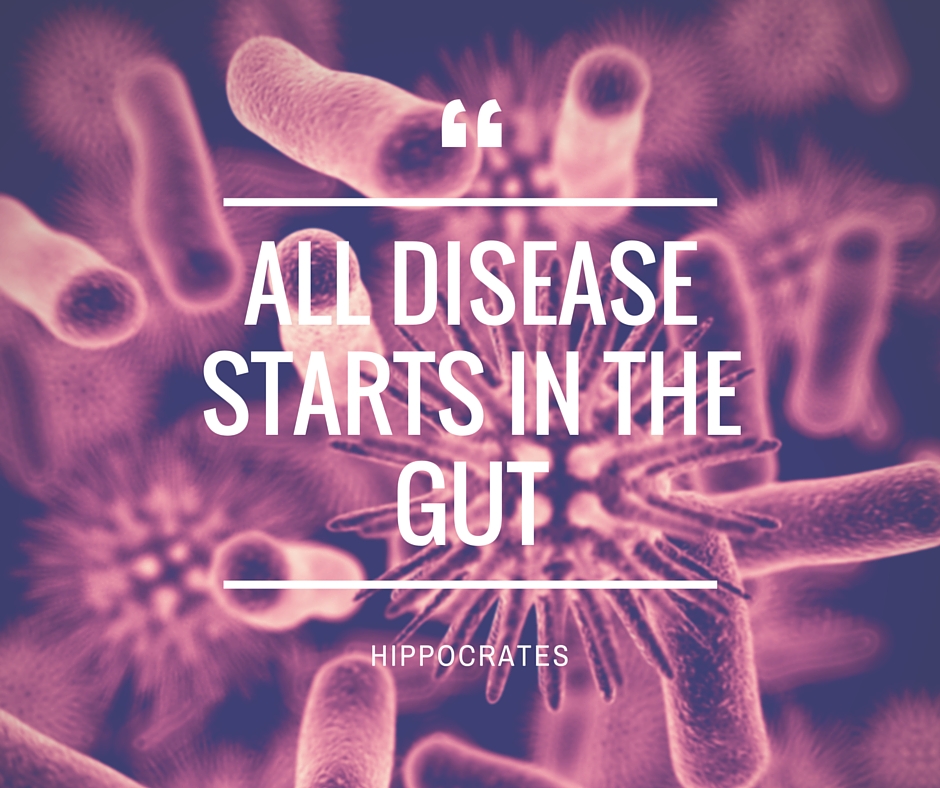 A glass of wine with dinner. A beer after a hard day of work. It’s not hard to integrate an occasional drink with a healthy lifestyle. Whole genres of music are written essentially about drinking (I come from a country music family!). In recent years, we’ve read that red wine is rich with antioxidants, and that an occasional beer can raise “good” cholesterol or stimulate lactation for breastfeeding mamas. But results from a new study suggest that even moderate alcohol consumption - the kind we tell ourselves is healthy - may actually be detrimental to our health. In other words, the much-heralded health benefits of drinking don’t outweigh the risks. As a result, there is no safe level of alcohol consumption. A recently published research study looks at data collected in almost 700 studies, spanning 195 countries and territories. Some of the findings are startling:
The authors of the study are firm in their conclusion: “By evaluating all associated relative risks for alcohol use, we found that consuming zero standard drinks daily minimizes the overall risk to health.” In other words, the only safe amount of drinks is none at all. This finding differs from many earlier studies, which often concluded that moderate drinking was the best approach. Why did this study reach a more decisive conclusion than previous examinations of alcohol’s effect on health? Several factors come into play. This study was careful to consider the ways they measured consumption. For example, researchers looked at regional variations in alcohol consumption that could be attributed to things like tourism. In addition, the study looked at alcohol’s impact on 23 different health-related problems. For some of those problems (such as heart disease), mild alcohol consumption had a positive effect. But that positive effect was balanced by a greater negative impact on other health issues (cancer is a strong example). What does this mean for you? If you drink, should you stop? Alcohol consumption is a very personal decision. This study looked at the big picture, worldwide. It was not studying individuals, but rather analyzing vast amounts of data previously collected, specifically looking at the risks for the 23 health issues. That data was conclusive. But it’s up to you how you apply it to your own life. This latest study can’t, for example, tell you if it’s OK to have some wine for New Year’s given your own unique genetics and other lifestyle factors. One thing is clear: If you’ve told yourself that drinking is healthy, you may want to reconsider that rationale. That doesn’t necessarily mean you must immediately quit. However in deciding whether or not alcohol is something you want in your life, it’s best to be realistic about the health risks. If you’re wondering about alcohol, talk to a healthcare practitioner. And be upfront about your drinking during the visit. Many people underreport how much they drink, but it’s best to be honest. You want to have an open discussion about all of your health concerns. Remember that healthcare providers aren’t looking to judge you: they want to work with you to create your best life. You also want to look at your own medical history and perhaps check out more specific studies. For example, another recently published study concluded that alcohol is the biggest controllable risk factor for dementia. If you have other dementia risk factors that are out of your control, such as a genetic history, you may want take action on the things you can control. Similarly, if you have a history of depression, consider alcohol’s impact on mental health. If you are trying to control your weight, the extra calories of alcohol aren’t going to help. Alcohol can also lower your judgment and keep you from making your best decisions. Alcohol intake may also increase your risk of estrogen dominance, and is a well-established risk factor for breast cancer. Some patients express frustration at the different results they see in health studies: One minute something is good for you, then suddenly we need to avoid it! Studies on alcohol use can be proof that when we read an eye-catching health-related headline, we need to look beyond the numbers. One thing to keep in mind is that the media will typically seize the most dramatic sound bite, although it’s impossible to always convey the nuances of a well-run scientific study in a short headline. For example, a news story doesn’t always mention who funded the study. For the record, the Lancet study on alcohol safety was funded by the Bill and Melinda Gates Foundation, while some others that emphasized alcohol’s benefits were funded by companies who sell alcohol. That doesn’t necessarily mean the studies are false, but we should all remember the funders have a vested interest in how the results are reported. Follow the money! As well, correlation doesn’t always equal causation. That’s sometimes hard to capture in reporting large studies. In fact there are studies that show that Resveratrol an antioxidant found in red wine is beneficial to your health however if you have other health issues like digestion.htmlpoor gut function, low energy, sleep issues and more, alcohol will likely have negative impacts and could make your health issues worse. One can absolutely gather the benefits of resveratrol by eating organic grapes with the skin on, rather than drinking wine, without negatively affecting other health issues - but that doesn't make for sexy headlines! Whenever you’re confused about a health issue, the best approach is to consider it from a sample study of one: yourself. That means talking to a healthcare provider about your own personal history and choices and your current health concerns. We can help you sort through all of the information you face every day and figure out what’s best for your unique body, in fact we are experts in doing just that! Book your complimentary Health Discovery Consult to discuss YOUR unique health goals. References
0 Comments
 Menopause and thyroid dysfunction: one is inevitable for women (if we are lucky to live that long) while the other is common. Both affect millions of women every year. The thyroid gland, which sits low in the neck, is considered one of the master hormone glands in the body and affects everything from our metabolism, cardiovascular function, the immune system, digestive health, mood and our body’s stress response. The thyroid especially affects our sex hormones. Menopause typically occurs for most women in their late 40s to early/mid 50s but can also be surgically or medication induced and involves dramatic changes to our sex hormones such as testosterone, estrogen, progesterone, DHEA, and cortisol. As these fluctuate many women start to experience symptoms that we commonly associate with menopause: mood swings, hot flashes, irregular or heavy menses, vaginal dryness and changes in hair and skin. Because these symptoms frequently occur, it is easy to confuse “common” with “normal” and chalk it all up the change. Not so fast. The thyroid gland acts like the thermostat of the body and is particularly vulnerable under times of stress. Major stressors like giving birth and being post-partum, being a student, mid-life, post-illness or surgery often coincide with major hormonal transitions like pregnancy, puberty, and menopause. When our body is under stress our thyroid gland kicks in to either rev us up or slow us down if we are in danger of burning out. Living a fast-paced life, many of us become susceptible to both sex hormone imbalances and thyroid disturbances. If our sex hormones are imbalanced, our thyroid function will be affected and vise versa. For example, depression, weight gain (particularly around the middle), scalp hair loss, body hair growth, menstrual irregularities, poor concentration, osteoporosis, fatigue, insomnia and low libido are common to both hypothyroidism (low thyroid function) and menopause. Since these patterns tend to be related to stress, it’s crucial to practice stress-reduction techniques and self-care (check out my Calm the F Down Self Care guide here), exercise and eat healthily. More importantly, however, we must determine the cause of these symptoms: poor thyroid function? Sex hormone imbalance? Both? Rather than spending time chasing your tail and taking unnecessary medications, it makes much more sense to determine the root cause of your symptoms. Getting a proper assessment is critical in establishing YOUR best course of action. In particular, I find the DUTCH Hormone test and a complete thyroid panel especially helpful. You may also want to look into these other tests for fatigue and hormonal imbalance. Often bioidentical hormone replacement therapy can be a game-changer for women throughout the peri-menopausal years and beyond to help restore quality sleep, balance moods and reduce heavy bleeding. Thyroid and hormone imbalances are common and can be improved when working with a Naturopathic Doctor as part of an individualized treatment plan to age gracefully with plenty of energy as you enter this exciting time of life. Sound like you? Have questions about your thyroid or hormones? Book a complimentary Health Discovery Session with me to chat more about your options. In health,
 7 Steps for Optimizing Your Vitamin D and Enjoying the Sun (safely). Keila Roesner ND. 7 Steps for Optimizing Your Vitamin D and Enjoying the Sun (safely). Keila Roesner ND. I was on away on a girls’ weekend recently. A gorgeous sunny day exploring Niagara wine country (this ND enjoys a glass of wine too!), laughing our butts off and trying not to fall off our bikes. It was a perfect opportunity to work on my “base tan” for the year. As a fair-skinned gal of Irish descent… I’m prone to grow freckles and get very very pink. Unlike my husband who gets a gorgeous tan every year, I have to be careful. But I certainly don’t avoid the sun. Ever. But wait, isn’t the sun the root of all evil? Skin cancer, melanoma and awful peeling skin? If the sun going to kill me… how come my ancestors survived?  The link here is Vitamin D. Vitamin D is an essential hormone and we are designed to get lots of it by being outside in the sun, moving around outdoors and enjoying the world around us. The challenge is that many of us spend our days inside working avoiding the sun between 10-2 pm, wearing sunscreen with a high SPF every day under our makeup and long light layers we can become very deficient. This is a big deal. Vitamin D is critical for our immune system. Many of us know about Vitamin D for bone health - Vitamin D helps regulate calcium and phosphorus absorption and excretion in the body. This is why many products are fortified with a synthetic version. Run of the mill health issues like coughs, colds, allergies, flus and other common issues are related to low Vitamin D levels that compromise our immune function. Vitamin D also keeps our immune system communicating so that we reduce our risk of more serious issues like Type 2 Diabetes, osteoporosis, heart disease, cancers and other autoimmune diseases like multiple sclerosis and rheumatoid arthritis. Low Vitamin D is also related to thyroid disease, mental health issues and hormone health. Adequate vitamin D is essential for digestive health as well, and when we are deficient we get leaky gut. When we lack Vitamin D our immune system loses touch with itself and we are more likely to get sick. Who is at risk?
Where can you get it?
Next Steps:
Vitamin D keeps your brain sharp, skin glowing, immune system humming along and is an essential part of your life. Practice safe sun, but don't fear it! Keep on the sunny side, 
It is a persistent ache-in-your-bones feeling, like walking through mud every day and struggling to do the little things. It is the disorientation of not feeling like yourself for the past few weeks, months or years. It clouds your brain, steals your sense of humour and weighs heavily on your relationships. And then there’s the guilt and self-judgement about why you just can’t seem to get it together. One of the biggest struggles that people with persistent fatigue face is that outwardly they look normal. Coworkers, friends and families may offer “helpful” suggestions about being more organized or going to bed earlier (a great point, but not THE point) or completely fail to understand. Even physicians may struggle to help once the basic blood work comes back “normal”. Lifestyle factors can and do play a massive role, so it is critical to ensure that you are getting enough good quality sleep, eating well, exercising, managing stress and taking good care of yourself. Working with a therapist, registered massage therapist, personal trainer and your health team can be helpful to make sure you’re covering your bases. If you are already addressing these areas and still feel like something is missing, Naturopathic Medicine can be a great solution. The next step is digging deeper and doing a thorough investigation to determine the cause of the fatigue and how these factors might be affecting your overall health. Here are some of the most important lab tests that we run to assess the fatigue you’re experiencing. Ferritin and iron panel – ferritin, % saturation, serum iron and total iron binding
Vitamin B12
Thyroid Panel – a full panel includes TSH, free T4, free T3, reverse T3 and anti-TPO
DUTCH Hormone Test
Autoimmune and Inflammatory Markers – hs-CRP, ESR, ANA, rheumatoid factor, tissue transglutaminase IgG and/or IgA
Organic Acids Test
Other factors to consider: You know yourself best. If you feel that something is off, you are probably right. It is better to know where you stand and choose to work with a health care provider that can offer you the evaluations you need to get to the bottom of things. A thorough investigation is important, but it is even more important to have a plan in place to address what you find. Diet and lifestyle factors like how you eat, how you move, how you sleep and managing your stress will ALWAYS need to be a part of any treatment plan you undertake. It can be easy to get caught up in a complicated regimine of supplements and medications, but focusing on a strong foundation is what really determines your outcome. If you have “tried everything”, have you been consistent enough? Being fatigued IS exhausting and it is only natural to get excited about the next newest thing… but nothing will work if you don’t give it a fair shot. You need a team. The support of a partner or friend or online community can make a world of difference when you are suffering from an invisible illness. Work together with your health care providers to get the right assessments and guidance to help you recover. If you feel unsupported, unheard or like you are bothering your provider, find another professional to work with that will take your concerns seriously. Working with a Naturopathic Doctor to address the causes of chronic fatigue can be invaluable to your recovery by helping you systematically address each of the areas above and make a concrete plan based on YOU. If this sounds like you, I invite you to schedule a complimentary Health Discovery session with me to talk more about your specific concerns. Please share this article with someone you know that is suffering. In health, Click here for more information regarding the tests and services we offer.
References:
 Creating a strong self-focused morning routine is one of the most important things you can do to set the tone for your day. Do you find yourself checking your email first thing in the morning and mentally answering questions… hours before you get into work? Rushing around in the morning, cramming breakfast in your mouth as you drive to work, already feeling that sense of impending anxiety and wishing you had more time for yourself? Feeling like your day is happening to you? Me too. Or rather, I used to feel that way. As an entrepreneur, I am more than a little obsessed with time management and productivity. As a Naturopathic Doctor, I am all about helping people create systems in their life to reach their health goals so that they can be more successful at work, and be the parent/partner/person they dream of being. I fell into the habit of auto-piloting my mornings, basing my schedule around when my husband needed to leave for work (ridiculously early), other roommates’ schedules and how much time I could spend falling into the black hole that is my Facebook Newsfeed. I would fly into the office just a few minutes before my first client, feeling a frazzled and unsettled. It is a recipe for anxiety and unproductivity. You feel like you are constantly chasing your tail and wind up frustrated by your lack of accomplishment at the end of the day. You stay up late catching up… or watching Netflix and always feeling perma-tired. Recently, I’ve been experimenting with a new “system”. Most successful entrepreneurs, top earners (C-office types) and the calmest people I know get up early. As a night-hawk born of two musicians, this concept is totally alien to me. I’ve gotten into the habit over the past few years, however, due to my husband’s schedule and the desire to spend time together before the day gets crazy. It’s actually very peaceful to be up and moving before the rest of the world. Once I’m up, I never regret it. Enter the Morning Triathlon: a super efficient start to the day to help you feel healthier, happier and more successful. Here’s why it works: By starting your day focusing on YOUR needs, you set a strong foundation for the rest of the day. Your email inbox and work day are full of other people’s demands for your time and energy… but by starting and ideally ending the day focusing on yourself, you will feel calmer and more productive. I call this concept “book-ending”. Ie. You book-end your day getting in the right frame of mind for your day in the morning, and then winding down in the evening. Here’s how you do it: Figure out how much time you have, and divide into three blocks: Mental, Movement, Mindful/Meditate. This is your Morning Triathlon. Ideally you have about 15 minutes or longer. Skip the time you spend reading the news on your phone.
My morning routine starts like this:
Some days I use a 15 minute block of time, other days I have longer. I never regret getting up early or taking care of myself. Self-care is vital to your health. Get my NEW Guide Calm the F*** Down: 5 Proven Strategies to Take Care of Yourself In my next blog post, I’ll share with you my favorite ways to build the perfect bedtime routine to help ward off insomnia. What are YOUR favorite ways to start your morning? Comment below! In health, Dr. Keila Roesner BHSc ND
 When the air starts to get a little chilly and you have a tickly in your throat… and your first thought is “Oh crap..!” what do you do? When there’s “something going around” and everyone around you has a cold, you might be exposed to any of the following viruses: Human Rhinovirus (over 100 strains!), Coronovirus (only about 5 infect humans), Human Parainfluenza Viruses, Adenoviruses and Respiratory Synctial Viruses. While there are plenty of folk remedies out there to ward off the common cold… some more effective than others. As a Naturopathic Doctor, I love working with herbs to help support the immune system, reduce congestion and speed recovery time. My favorite herbs to help fight off the common (but inconvenient!) cold include ginger, Echinacea, garlic, and andrographis. Ginger has long been used in Asia as a “warming” spice to improve circulation. Clinical studies have proven ginger to have some antiviral properties, can be effective against arthritis pain and inflammation and can be helpful for low appetite and nausea. Ginger can also help decrease menstrual cramps! And it’s always nice to sip on something warm! You need:
Here’s what you do:
Want to really reduce your risk of getting sick? Sign up for my natural Cold & Flu Support Program. In health, Dr. Keila Roesner BHSc ND
References
 Your body is ALWAYS trying to communicate with you. The problem is that most of us get so busy that we forget how to listen… so our body needs to scream to get us to pay attention. I hear it all the time. “But Dr. Keila, I’m pretty healthy..”! Meanwhile, you may be taking a few prescription medications to control your blood pressure, thyroid and that random rash that comes and goes. TUMS are in your medicine cabinet and you carry Tylenol in your purse all the time. But that’s all normal, right? Nope. Not at all. There is a BIG difference between common and normal. Common is taking a few prescription medications, having digestive issues and bad knees. Normal is having a good night’s rest, waking with energy and not requiring caffeine. Normal is being able to eat food without feeling awful afterwards, and almost never getting heartburn or headaches. Big difference. Sometimes our body needs a reset. To clear the clutter and figure out what actually is going on. Here are 10 major signs your body is not functioning “normally” (even though they may be common!).
A good detox should help you address all of these things. It is not meant to “fix” things, but to help your body reset and tune out some of the noise so that you can actually figure out what the heck is going on. Do any of these sound like you? Comment below! If you are tired of these common, but definitely NOT normal signs, here’s three free you can do:
If you found this article interesting please share. In health,
 What if Irritable Bowel Syndrome (IBS) wasn't "just in your head?". This may seem revolutionary for many physicians... and people that don't have IBS. Anyone living with IBS knows it's true. Nobody wants to be bathroom bound when they try to leave the house, or have to scan a restaurant menu frantically looking for the one item that won't cause them pain or embarrassing gas within an hour. Well, it's true. Small Intestinal Bowel Overgrowth (SIBO) is estimated to be the cause of anywhere from 40-85% or more cases of IBS. Clinically, I would say that this number is even higher. Your Gut is a Garden There are several types of bacteria within the digestive system. The particular species depend on things like your genetics, your birth type (hospital, home birth, vaginal, C-section), breast versus formula feeding, your diet, medications and stress. They can change over time and the unique combination can markedly affect how you feel. It can be helpful to classify human bacteria into three categories:
Much like a garden, there are a combination of plants that you want like tomatoes, sunflowers, parsley (healthy bacteria), species that show up that can take over if not contained like mint, orange lilies (commensals) and then there are invasive weeds like bindweed, thistles (pathogenic bacteria). Every garden will have a combination of all of these. As in the human digestive system, we want the balance to be tipped in favour of the helpful species, so that the neutral species can exist in manageable amounts, and hopefully ultimately crowd out the weeds. A diligent gardener can also go a long way. Normally, the majority of bacteria within the digestive system reside within the large intestine where they work on the food you're digesting to produce Vitamins B1, B2, B6, B12 and K2 as well as other substances. Since we have 10 times as many bacterial cells in our body as we have human cells, even a small alteration in our bacterial garden can change our landscapes dramatically. Our In House Gardener: The Migrating Motor Complex (MMC) The MMC coordinates electrical wave patterns every 90-120 between meals that sweeps through the stomach and small intestine to helps propel food and bacteria from the ileum (the end segment of the small intestine) to the large intestine. In order to function properly, our body needs to have a break between meals. In SIBO, these bacteria can migrate backwards, up into the small intestine which normally has far fewer bacteria. This migration can occur with intestinal permeability, certain medications, inflammatory bowel disease (Ulcerative Colitis, Crohn's Disease), Celiac disease, and low stomach acid. Because competition is less fierce in the small intestine than in the large intestine [Read my previous blog here to review], these bacteria can settle in, replicate and grow without being crowded. This is like freshly tilling your garden and then going on vacation for two weeks only to find that your neighbour's weeds crept under the fence and have taken over. Now you have thistles that are six feet tall. The problem is that now you have bacteria existing in high amounts where they would not normally be and they are now crowding out healthy bacteria, interfering with your crop and attracting pests. The overgrowth can be a combination of healthy, commensal or pathogenic bacteria.... it doesn't really matter because you've got a forest on your hands. This overgrowth is what contributes to much of the discomfort of Irritable Bowel Syndrome. Have you ever noticed that flowers are easily pulled but weeds have deep roots? Same story here. The bacteria that takes hold likes to stick around and make a mess. It can throw off the MMC, and instead of helping to digest your food it ferments it. Fermentation is the process of converting sugars in foods to gases or alcohol, as in beer, wine and sourdough bread. Our bodies are not designed to ferment, and when we do, we bloat. We get gas pains and "I swear I'm not 3 months pregnant!" food babies after eating. Because the food is not breaking down properly, we also get intestinal permeability. We are more likely to have other problems too:
Sound familiar? In our next blog post, we are going to be covering the key signs to watch out for to tell if you have SIBO and what you can do about it. If you found this post helpful, please share with your friends and family! In happy digestive health, Dr. Keila
References
 I had a potential new client in my office today who had been diagnosed by her family doctor with Irritable Bowel Syndrome several years ago. When she asked what she should do next, he told her to "go read about it". Wait, what?! There is so much misinformation online: treatments based on outdated science, "it-worked-for-my-sister's-neighbour" stories and down right bad advice. Unfortunately, she did not have a medical degree or background in research to be able to decipher the good from the bad. She knew that the info she was seeing on Yahoo forums was probably questionable, she didn't know where to go to find good information. So she was referred by her pelvic floor physiotherapist to me. "Reading about it" had done nothing for her and she was sick and tired of daily diarrhea. She is not alone. One of the most common causes of IBS is a little known condition called Small Intestinal Bacterial Overgrowth (SIBO) - [read my previous blog post here]. While you should absolutely work with a knowledgeable health professional, there are several tell tale signs that your IBS is actually due to SIBO (and not a deficiency in "reading about it"). 5 Key Signs You Might Have SIBO:
If any of these sound familiar, let's set up a time to chat. Book your complimentary Health Discovery Session to discuss your options. Getting the right testing is the first step to getting better. The good news is that there are some very good tests you can do to see if SIBO is causing your IBS. Based on your results, we can create a customized plan to get rid of the discomfort, gas, bloating and bathroom embarrassment. Once and for all. In my next blog, we will talk about some of the testing you should have to finally get rid of your Irritable Bowel Syndrome. In health,  There's a burning fiery pit in your chest. It's not a heart attack. You've checked with your doctor before. It's feels heavy, uncomfortable and burns. At your last visit you were told that you probable have GERD. And you think, "what a goofy name for something that feels like hell!" Heartburn, or Gastroesophageal Reflux Disease (GERD) accounts for one out of three primary care visits, and has been increasing quite dramatically over the last two decades (1). It's now estimated that 18-27% of adults in North America experience heartburn at least once weekly (2), and many experience it daily. Which absolutely sucks. This sharp increase can be attributed to rising rates of obesity, and is more common amoungst smokers and with age. Common symptoms of GERD include:
A diagnosis of GERD is often made at the physicians office, and then commonly, anatacids (Gavison, Rolaids, Tums), H-2 receptor blockers (Pepcid AC, Zantac) or Proton pump inhibitors (PPIs, like Prevacid, Losec etc.) are recommended to "stop the burning". If it helps, it is assumed that GERD was your problem. But we seem to have gotten a little caught up with this idea that burning = too much acid. If you've read my blog "Why Does My Stomach Hurt?" you'll see that it is a little more complicated than that. Heartburn typically stems from one of four causes:
Very rarely have I ever seen increased stomach acid cause heartburn. Rather, it is most likely a combination of low stomach acid, over-eating and a weak lower esophageal sphincter. Zollinger-Eillison Syndrome is the only known cause of increased stomach acid, and is a very rare condition where one or more tumours in the small intestine or pancreas (gastrinomas) secrete a large amount of the hormone gastrin which then causes the stomach to produce too much acid (5). In summary, your stomach is probably not too acidic. But something else is going on, making your uncomfortable. Don't you want to find out.. and fix it? If you or someone you love is experiencing heartburn and want to treat the cause, please book a Free 15 Minute Health Discovery Session with me. In our next few blogs, I will outline how to know if GERD is part of a larger puzzle and how you can start improving it naturally. Until then, happy digesting! References:
|
Top 75 Naturopath Blogs & Websites For Naturopathic DoctorsAuthorDr. Keila Roesner is a Naturopathic Doctor. When not treating patients she is also an enthusiastic barefoot-strolling, music-loving, yoga-doing kitchen wiz - who also happens to be a wrestling fan. Categories
All
|
Let us take you from hormonal to whole.
|
Dr. Keila Roesner, BHSc ND
Naturopathic Doctor, Hormone Warrior and Your Wellness Cheerleader 247 Church Street, Stratford ON N5A 2R7 (519) 273-0900 [email protected] |
|














 RSS Feed
RSS Feed